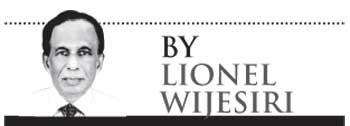Reply To:
Name - Reply Comment
Last Updated : 2024-04-19 00:10:00
 resident Maithripala Sirisena recently said the policy of the new Government was both reconciliation among communities and development of physical resources.
resident Maithripala Sirisena recently said the policy of the new Government was both reconciliation among communities and development of physical resources. single country of their own free will and for the benefit of all.
single country of their own free will and for the benefit of all. 
Add comment
Comments will be edited (grammar, spelling and slang) and authorized at the discretion of Daily Mirror online. The website also has the right not to publish selected comments.
Reply To:
Name - Reply Comment
On March 26, a couple arriving from Thailand was arrested with 88 live animal
According to villagers from Naula-Moragolla out of 105 families 80 can afford
Is the situation in Sri Lanka so grim that locals harbour hope that they coul
A recent post on social media revealed that three purple-faced langurs near t

10 Apr 2024
09 Apr 2024